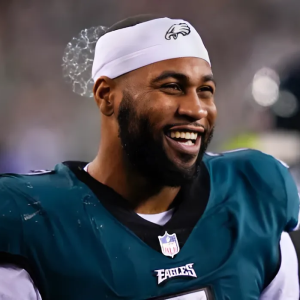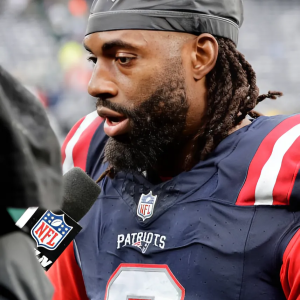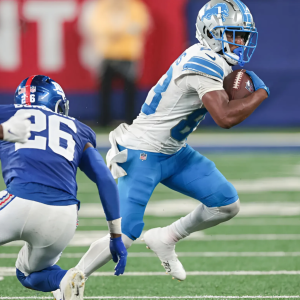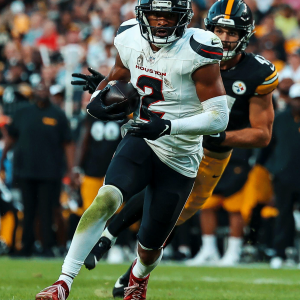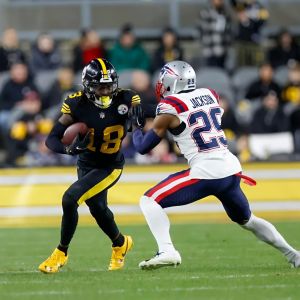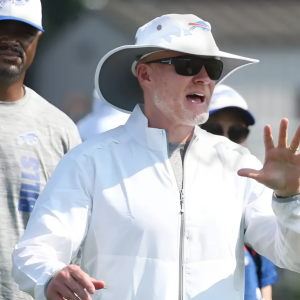The original idea for this piece was the five worst first-round picks of the Les Snead era. However, Snead has only selected seven first-round players in his career and fortunately for the Rams, the majority of those picks turned into massive contributors for the franchise.

With the limited amount of selections, the criteria was extended to cover the Rams’ first-round picks since 2000. An up-and-down drafting history, the Rams struggled to find consistency during the 2000s. That bled over into the Jeff Fisher era, compiling a list of players that didn’t live up to their billing. Here are the Rams’ five worst first-round picks since 2000.
5. Sam Bradford (Pick 1, 2010)

Rick Osentoski-USA TODAY Sports
The problem with Bradford wasn’t that he was bad. It was that he wasn’t a superstar and the Rams in 2010 needed a QB who would be able to overcome the multiple hurdles that had prevented the team from making the postseason since 2004.
The Rams during that time weren’t the competitive force that they were in years past. The Greatest Show on Turf had been gone for a while, QB Marc Bulger hadn’t thrown for over 3,000 yards in three seasons and the offense consisted of Steven Jackson and a prayer. When Bradford came in, he walked into an offense that never resolved their left tackle issue, would endure a variety of coaching changes and never had the personnel or scheme to be consistently successful.
It would’ve taken a Herculean effort from the Heisman winner to uplift the Rams when in reality, Bradford was a game-manager. To add insult to injury, coming off back-to-back torn ACLs in his left knee, Bradford would put up equal or better numbers in his stops with Philadelphia and Minnesota before injuries ended his career.
It makes one think that had Bradford been lucky enough to play with Sean McVay or the players brought in during the McVay tenure, the narrative of his career would be very different. One will never know. What makes Bradford one of the worst picks is that he was the first overall selection. If a rookie QB is supposed to be a game-changing talent, it should be the first one off the board. To make matters worse, the next six selections after Bradford made the Pro Bowl. Remember the left tackle problem? Two of those picks included Trent Williams and Russell Okung. Yeah.
To give Bradford and the Rams credit, quarterback was a clear need and Bradford was the prototypical franchise QB archetype. He also was the best QB in the class by a mile. Other noteworthy QBs selected were Tim Tebow, Jimmy Clausen and former Rams assistant coach Zac Robinson.
4. Robert Thomas (Pick 31, 2002)

(Photo by Getty Images)
Thomas was selected out of UCLA and was immediately thrown to the fire. Tasked with replacing gigantic shoes, the defending NFC champion tasked Thomas with replacing the outgoing London Fletcher.
The problem with Thomas wasn’t that he was bad. It’s that he was replaceable. A constant starter and solid tackler, Thomas just didn’t have the wow factor one would expect from a first-round pick. This was made evident by a trade to Green Bay before Thomas’ rookie contract expired.
3. Trung Canidate (Pick 31, 2000)

Peter Brouillet-USA TODAY NETWORK
Sometimes in life, a moment occurs that is so mind-boggling, one just has to look at the situation and stare. Kind of like that one Raiders fan when Clelin Ferrell was selected to be Khalil Mack’s replacement, many people had the same thoughts of confusion when the defending Super Bowl champions, fresh off of lighting up the league with the Greatest Show on Turf, decided to select a running back with their first pick.
Canidate came out of Arizona, turning heads with a 4.25 40-yard dash. A nice addition to play Robin to Marshall Faulk, the Rams front office must’ve forgotten that this was 2000 and teams didn’t rotate running backs like they do today.
In 1999, Faulk was the Rams’ leading rusher. The second leading rusher was fullback Robert Holcombe who averaged 5.2 carries per game. The second leading running back was Justin Watson. Watson played in 8 games, started none and averaged 5.8 carries in those games. Amp Lee was the only other running back to get carries, playing in three games. Out of the 303 carries by running backs in the 1999 season, only 16 percent were carried by someone not named Marshall Faulk.
With this being said, the Rams still selected Canidate and guess what? He didn’t get opportunities. In three years with the Rams, Canidate played in 35 games and started three of them. He averaged 2.8 carries per game for a grand total of 464 yards. He would be traded to Washington where he played for one year before retirement.
2. Greg Robinson (Pick 2, 2014)

Jeff Curry-USA TODAY Sports
My feelings towards Greg Robinson have been noted in this draft cycle and he joins a long list of players that make me hesitant to endorse Auburn prospects. In fact, outside of Cam Newton and Derrick Brown, I have not endorsed an Auburn player since beginning to cover the draft.
And the Rams might feel the same way considering their history with Auburn players. Capped off by Robinson due to his status as the second overall pick, he had a rough transition from college into the league and that led to poor behavior on and off the field.
To make matters worse, four picks after Robinson’s selection, the Atlanta Falcons selected Pro Bowl LT Jake Matthews. Nine picks after the Rams’ selection, the Tennessee Titans would select Pro Bowl LT Taylor Lewan. Those players played up to this point, a combined 19 years in the league for the teams that drafted them. Robinson played three years for the Rams.
1. Jason Smith (Pick 2, 2009)

James Lang-USA TODAY Sports
There’s no Greg Robinson without Jason Smith. Robinson had high hopes of righting the wrong that was the Jason Smith tenure and despite the fact Robinson did not do that, he did play in more games and have more starts than Smith.
Drafted second overall by St. Louis, Smith signed a six-year, $61 million rookie deal with $33 million guaranteed. The heir apparent to Hall of Famer Orlando Pace whom just left the team in the offseason, Smith’s time with the Rams ended up being a disaster.
Smith mostly played right tackle despite his long history of playing on the left, a decision that continues to boggle the mind while his play suffered through a constant series of injuries and a multitude of concussions.
Smith did not work out and considering the return on investment from Smith in terms of his contract, his career directly led (with others) to the NFL instituting massive overhauls to rookie contracts including the standardized pro-rated deals used in today’s NFL.
However, despite his short career, failure was not fatal nor final. Since retiring, Smith has become an avid horse breeder and was recently named the tight end coach of Abilene Christian University.
